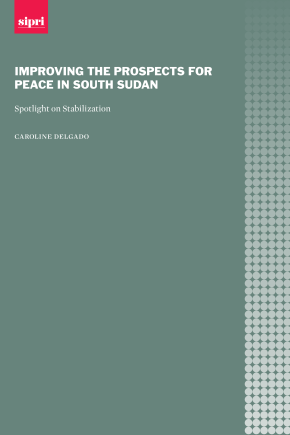Improving the Prospects for Peace in South Sudan: Spotlight on Stabilization
South Sudan is home to one of the world’s worst hunger crises, a consequence of decades of armed conflict and devastating extreme weather events. Conflict, climate change and hunger have forcibly displaced nearly seven million people, out of a population of 11 million. The World Food Programme (WFP) operates in the middle of this intersection.
In 2022, WFP provided food assistance to nearly 6 million people. This food assistance has an impact on conflict and peacebuilding dynamics. This report analyses the impact of that assistance, drawing out the contribution of WFP’s programming to enhancing stability through a reduction in violence and improved basic physical security. Based on field-based research in the capital Juba and state capitals Bor (Jonglei State) and Bentiu (Unity State), the findings are presented through two theories of change, which articulate the pathways through which WFP programming contributes to enhanced stability, reduced violence and improved basic physical security. The report offers 11 recommendations on how WFP can further enhance this contribution.
1. Introduction
2. Context analysis
3. The South Sudan case study approach
4. Theories of change
Conclusions

